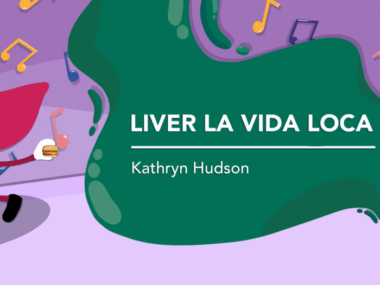HealthWell Foundation opens fund for MASH patients in US
Fund offers up to $8K for 1 year to cover medical bills for eligible patients
Written by |

The HealthWell Foundation, a charity that helps people who can’t afford to pay their medical bills, has started a new fund to support those living with metabolic dysfunction-associated steatohepatitis (MASH), a severe form of fatty liver disease.
The fund offers up to $8,000 for one year to help pay for medications, doctor visits, lab and diagnostic tests, and travel costs for treatment and monitoring. It’s available to patients whose annual household incomes are up to 500% of the federal poverty level, adjusted for family size and high-cost housing areas.
“Opening a compliant MASH fund has been a long-time goal for HealthWell,” Alan Klein, HealthWell Foundation’s chief development officer, said in a press release. “We thank our dedicated donors for helping us provide financial relief to the MASH community so they can focus on their care, not the cost.”
Eligible patients can apply online for MASH fund
To qualify for the MASH fund, patients need to be receiving treatment for the disease in the U.S., have insurance that covers medications, and have an income that fits within the guidelines. Eligible patients can either apply or re-enroll, if they’ve received a grant with HealthWell in the past.
MASH, which was formerly known as nonalcoholic steatohepatitis, occurs when extra fat builds up in the liver, causing it to become inflamed and scarred. After years of damage due to scarring, MASH can lead to cirrhosis, or severe scarring, resulting in complications such as loss of liver function.
Its exact causes are not known, but it’s well-understood that obesity, high cholesterol, high blood pressure, diabetes, and metabolic syndrome increase a person’s risk of developing MASH. Older age and diabetes also increase the risk of progression to end-stage liver disease, which may require a liver transplant.
“Recognizing that MASH is now a leading cause of liver transplantation in the U.S., it’s time we address this public health crisis,” said Lorraine Stiehl, CEO of the American Liver Foundation, a nonprofit organization that promotes liver health and disease prevention.
Currently, there’s no cure for MASH, but following a healthy diet and losing weight through medications and lifestyle modifications, such as exercising and changing eating habits, can help manage the disease. Other medications that help lower blood sugar and cholesterol levels may also be used to treat other co-occurring conditions that may worsen liver disease if not managed.
“There are now available treatments, along with lifestyle changes, to slow the progression of the disease,” Klein said. However, “for patients, accessing and paying for treatment and other associated costs may often present a financial hurdle and dissuade adherence to the prescribed treatment regimen.”
Fatty Liver Foundation lauds HealthWell for recognizing, helping patients
“As a liver disease patient, I understand firsthand the nuances and obstacles of living with MASH,” said Wayne Eskridge, CEO of the Fatty Liver Foundation, a U.S. nonprofit that supports and advocates for people living with fatty liver disease.
“Treatment and management of the disease requires multiple medications, diagnostic testing, and follow-up,” Eskridge added, lauding “the HealthWell Foundation for recognizing this undue hardship for patients and for providing the financial resources to access and adhere to their treatment regimen.”
HealthWell estimates patients use an average of $3,250 during their one-year grant cycle. The grant remains active for the entire year, or until the allocated amount has been exhausted, whichever comes first.
Under the MASH fund, the foundation can — as an alternative — assist with health insurance premiums. Medicare supplemental insurance can help pay out-of-pocket costs. Covering premiums may be a better option than copay.



